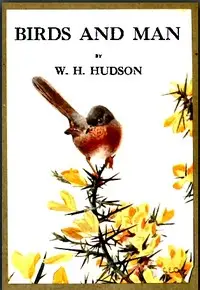"Wilhelm Tell" by Friedrich Schiller is a historical drama written in the early 19th century. The narrative is set against the backdrop of Switzerland in the 14th century, centered around the legendary figure of Wilhelm Tell, a skilled marksman and an embodiment of the struggle for freedom against oppressive rule. The play explores themes of tyranny, resistance, and the quest for independence as it follows Tell and his compatriots in the fight against the Austrian governor Hermann Gessler. The opening of "Wilhelm Tell" introduces the serene yet tension-filled landscape of Switzerland, where ordinary citizens discuss the oppressive actions of the Viceroy’s men. We see a fisherman, a huntsman, and a shepherd amidst the brewing storm that symbolizes the underlying conflict. The narrative begins to unfold with a sense of urgency as Baumgarten, a man pursued for killing the lecherous seneschal, seeks refuge on the lake. The brave Wilhelm Tell makes his entrance, showcasing his heroism by risking himself to save Baumgarten from capture. The opening sets the stage for a story steeped in political unrest and escalating rebellion, ultimately leading to Tell's critical role as a figure of resistance, foreshadowing the larger conflict that will define the narrative. (This is an automatically generated summary.)

Wilhelm Tell
By Friedrich Schiller
Alternate title: William Tell. See also PG#6788
Johann Christoph Friedrich von Schiller was a German playwright, poet, philosopher and historian. Schiller is considered by most Germans to be Germany's most important classical playwright.
More by This Author
Discover other books written by the same author

History of the Revolt of the Netherlands — Volume 01
By Friedrich Schiller

The Piccolomini: A Play
By Friedrich Schiller

Wallenstein's Camp: A Play
By Friedrich Schiller

History of the Revolt of the Netherlands — Complete
By Friedrich Schiller

Wilhelm Tell
By Friedrich Schiller

Don Carlos: A Play
By Friedrich Schiller
More Like This
Explore books similar to the one you're viewing by keywords

Birds and Man
By W. H. (William Henry) Hudson

After Dark
By Wilkie Collins

Parodies of Ballad Criticism (1711-1787) A Comment Upon the History of Tom Thumb, 1711, by William Wagstaffe; The Knave of Hearts, 1787, by George Canning
By William Wagstaffe

Practical Graining, with Description of Colors Employed and Tools Used
By William E. (William Edmund) Wall

History of the United Netherlands from the Death of William the Silent to the Twelve Year's Truce, 1585c
By John Lothrop Motley

Pastoral Poems by Nicholas Breton, Selected Poetry by George Wither, and Pastoral Poetry by William Browne (of Tavistock)
By Nicholas Breton
Related by Category
Discover books in the same genre or category

Faust [part 1]. Translated Into English in the Original Metres
By Johann Wolfgang von Goethe

Father Goriot
By Honoré de Balzac

David Copperfield
By Charles Dickens

The Mill on the Floss
By George Eliot

Pascal's Pensées
By Blaise Pascal

Letters of Marcus Tullius Cicero
By Marcus Tullius Cicero
Account Required
You need an account to complete this action.
